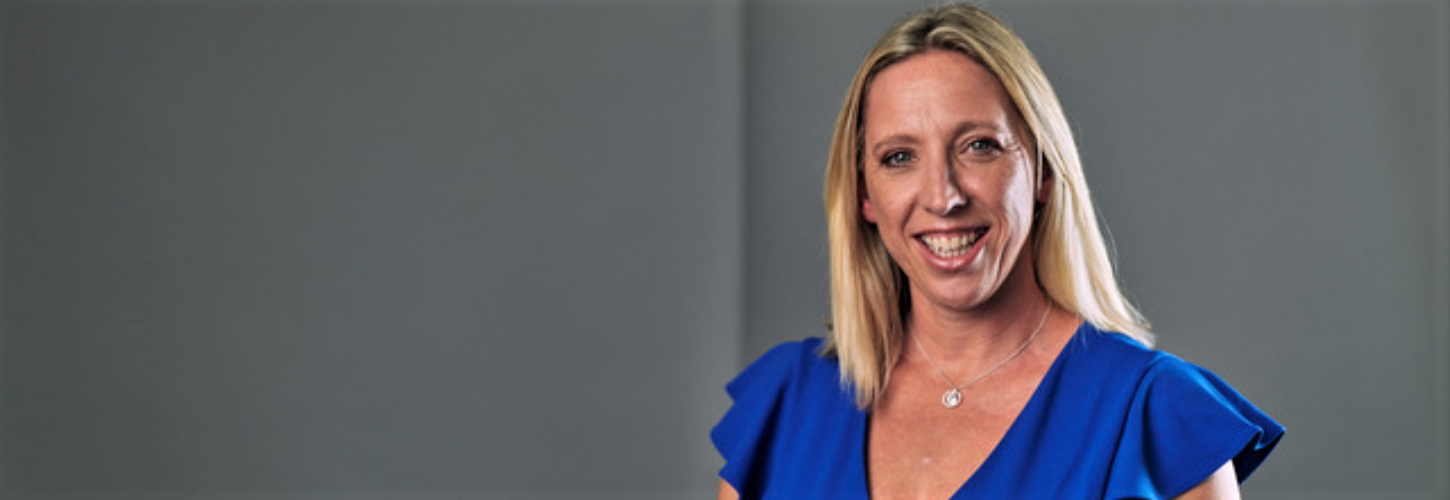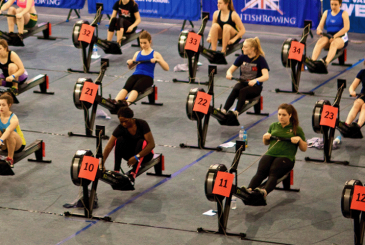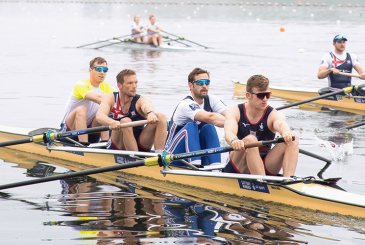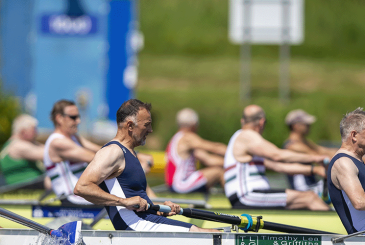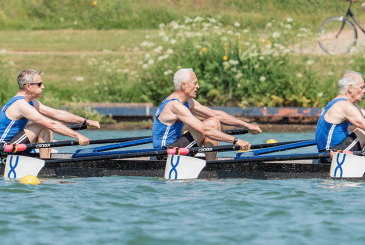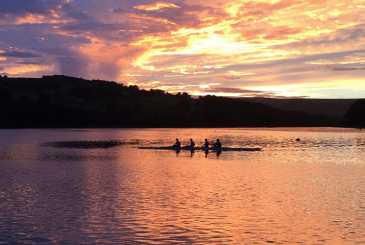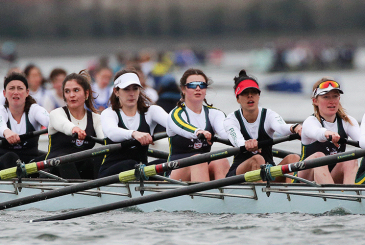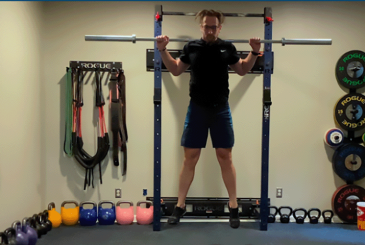On International Women’s Day Dr Emma Ross talks about the importance of exploring female athlete health to Rebecca Charlton
Dr Emma Ross is a co-founder and co-CEO of The Well HQ, a resource for women with a strapline that reads, “From puberty to menopause, this is health and training through the female filter.” Ross and the team are starting crucial conversations around topics that seem so blindingly obvious to some people – yet are still not being had at a fundamental level in women’s sport.
Menstrual cycles, breast support and puberty, just a few factors that significantly affect the female athlete yet often topics that are put to one side and disregarded as embarrassing or too difficult. This International Women’s Day, Ross sat down with our writer, Rebecca Charlton, to discuss why her mission isn’t complete yet.
In the months following the 2016 Olympic Games in Rio, Great Britain was dubbed a ‘sporting superpower’, but it left women’s health and performance expert Dr Emma Ross pondering what was still left to do.
“We won more medals than ever and finished second in the table. It was exceptional, but how could we continue to improve?” Ross explains she didn’t see the answer in the phrase popular by then – ‘marginal gains’ – but by “tapping into something more fundamental – the female part of the female athlete.”
“Knowing that the best [bra] support can give you a four per cent improvement in performance for me was earth-shattering”
Ross spent the early part of her career teaching physiology to sports science, physiotherapy and medical students and in 2013 joined the English Institute of Sport (EIS) as Head of Physiology to lead the sports scientists supporting Olympic and Paralympic athletes. It was at that point she became focused more specifically on the physiology and psychology of female athletes.
I shared my own experience with Ross as we sat down to chat on Zoom and we spent a lot of time during the call, empathetically nodding in agreement with each other.
When I was growing up in the world of competitive sport, I remember one day, after training, being told by one of the other parents that I’d become ‘rather big’ for my kit. After going home quite tearful, my mum reassured me that I couldn’t fight puberty and that didn’t mean I was ‘getting big or fat.’
In my experience, back then, there certainly wasn’t a system in place to keep conversations such as these positive in the sporting arena. I wondered if similar experiences had led Ross to be particularly inspired to improve things for women and girls.
“I’ve seen the system you’ve described, and I feel quite fortunate that, for the most part, I didn’t experience that as I was growing up in sport. Not when I was very young. I was at an all-girls school so perhaps that was a really different environment – we were all girls together and we were taught by women,” she says.
Ross played team games for many years, focusing on rugby at university and playing at Twickenham before moving her focus to endurance sport, completing an Ironman and several marathons. During her rugby days her experiences differed.
“The first time I crossed into that space was when I started playing rugby,” she explains, “and really the women’s game was considered such a second-class citizen to the men’s, without any sort of empathy for the fact that the women’s game journey had been so short. No girls would have learnt rugby in school at that point, so we were all just kind of learning and people were quick to judge.”
The level of parity has significantly improved since then, in some sporting environments more than others, and Ross notes how far things have come in the last two decades.
“Sport has to be a place where women feel like they belong, truly belong and they can be women and they can show up as themselves. On reflection perhaps when I was in my twenties playing sport, that wasn’t the case. We were very much ‘the other’. We almost had to stay on the periphery, all of the facilities and the coaching that was afforded to the men’s game wasn’t afforded to the women.”
Years later, as a woman walking into a leadership role with the English Institute of Sport (EIS) she was again struck by how male dominated the sporting system and infrastructure was as a whole.
“The physiology and psychology of males and females is very different and seeing a system that was treating them both the same really ignited a curiosity in me as to whether that was the right way to do things,” she says.
“One of the things we want to celebrate is that sport allows us to be whatever shape and size we need to be to be good at our sport”
Ross goes on to tell me about the huge gender disparity when it comes to physiological research. “In sport science and medicine 26 per cent is done exclusively on males, around four per cent on women and the rest is done on mixed groups, but we know that the quality of that research when it comes to applying it to women is poor. It either ignores the fact that we have menstrual cycles – or it tests at one particular point in the cycle, where the sex hormones are the lowest, so most closely resemble the physiology of a man. Therefore, the outcomes of that research serve no one particularly well.”
I prompt Ross for some more statistics that stand out for her as particularly staggering. “Sports bras.” She replies.
“Knowing that the best support can give you a four per cent improvement in performance for me was earth-shattering. It took me decades probably to get the right breast support for running. I knew it was causing skin abrasions and muscle soreness, but I didn’t think it was actually going to be affecting my stride-length, my muscle activation and the energy cost of my running – now we know all those things add up to about a four per cent impact on performance.”
Ross highlights this tip of the iceberg when it comes to a lack of research and how much more attention we should be putting into better serving female athletes. I wonder if rowing has points of difference in her experience, after exploring the environment in so many different sports.
“Rowing is a sport where being big and strong and healthy is really positive. We have lots of sports where being lean and light is seen as such an important determinant of performance and that can be taken to the extreme.
“We then see a really significant impact on health, because girls are under eating, over training; they become energy deficient, they may lose a period and they may get stress fractures from just walking along the street…
“We’re not saying that doesn’t happen [in rowing], but that’s one of the things we want to celebrate is that sport allows us to be whatever shape and size we need to be to be good at our sport and that shouldn’t have to be always the lightest and leanest that we can possibly be.”
For any woman or girl reading this article thinking you couldn’t think of anything worse that bringing up your most intimate concerns with a coach, Ross draws a useful parallel.
“We discuss how much we’re told how not to get pregnant, how not to talk about a bad period, but not how we can actually thrive”
“Ultimately we say, if it was a dodgy ankle or a niggling back injury and it was affecting your ability to train and perform, even if it was a food intolerance or something, you would most likely be quite happy to discuss that with your coach. We have to put female health in that bracket.
“When it’s appropriate and when it’s affecting your health as an athlete it’s totally normal to talk about it and the only way we get to that point is by talking about it.”
Ross notes there has to be boundaries and these trusting relationships aren’t built overnight.
“In sport particularly, women don’t want to be judged as the weaker sex,” she continues. “We’ve worked so hard towards greater equality, whether that’s equal pay, equal media coverage, equal access to facilities and coaching and to put your femininity out and say ‘actually this bit’s not working for me’ leads to a fear that it’s judged as a weakness and dismissed – that’s huge.”
We discuss how much we’re told how not to get pregnant, how not to talk about a bad period, but not how we can actually thrive. In fact, there’s an assumption women simply ‘know this stuff.’
“We get taught the mechanics of things, but we don’t get taught about how our body will work when we are being active, so that we can figure out how to optimise [things like our menstrual cycle] to get onto a podium, rather than holding us back,” says Ross.
I suspect there could be more women in leadership roles in sports science and coaching, backed by the startling, but perhaps not surprising statistics which Ross cites.
This International Women’s Day Ross and her co-founders of The Well are hosting a free webinar called How to train like a woman
“I think it’s improving and there are initiatives to accelerate women into more senior coaching positions. We’ve just seen recently that only 10 per cent of the Olympic and Paralympic coaching is female, so that’s 90 per cent of the head coaches, across a high-performance system that are male and that does make a difference.
“It’s not taking away from the talent and experience that those male coaches have but, for example, men will create a culture differently to how women will develop a culture. If you’ve got them co-creating it will probably fulfil the needs of lots of different people.”
With a vast background in research, Ross expands: “We know the coaching and leadership style of men tends to be more autocratic – command and control – we know that the coaching and leadership style of women tends to be more empathetic and based on connections and interpersonal relationships, and we know that women athletes thrive in the type of leadership and coaching that women can give. So, I think it’s really important that more women are in the sports infrastructure.”
This International Women’s Day Ross and her co-founders of The Well are hosting a free webinar called How to train like a woman, which they welcome us to join. “It’s actually our favourite one to do,” explains Ross, “because we get to take a whistle-stop tour through all of the areas where we feel women have been underserved.
“We take people through topics like the menstrual cycle, hormonal contraception, injury, pelvic health, breast support, nutrition mindset and psychology. Also, sleep and the life phases of a woman, which affects our physiology as well as our psychology. We’re going to tell you some things to get your brain cogs whirring,” she beams.
“Keep having fun and get a good sports bra!”
I’m so pleased to hear that Ross had such a positive introduction to sport as a young girl, but I wonder what she’d go back and tell her 14-year-old self, armed with the knowledge she has now…
“We’ve spoken about sports bras and you know what?” smiles Ross, “If I knew what I know now I know I would’ve saved myself a lot of money and a lot of pain by giving myself the advice about breast support.”
She thinks for a moment and continues, “Ultimately, never let sports stop being fun because the moment it does, is the moment we need to question whether we’re being supported in the right way. So… keep having fun and get a good sports bra!”
In fact, Ross and her colleagues are working with schools to get these key messages out there at what she describes as a “really critical age”.
“If you don’t know that stuff at the beginning, how are you ever going to know about your menstrual cycle in your twenties? How are you ever going to know about it when you’re going through menopause? So, we’re educating in schools, but also working with national governing bodies to really make sure that active women are thriving across all of the sports,” concludes Ross.
Clearly in demand, especially this week, she dashes off Zoom to add some finishing touches to the book she’s working on: Train Like a Woman.
Meanwhile, I’ve walked away from the laptop for the evening wishing Emma Ross had been on my team at school and I can’t wait to get my hands on her words of wisdom in print.
Train Like a Woman is out in April 2021 and you can find out more about The Well HQ here.


